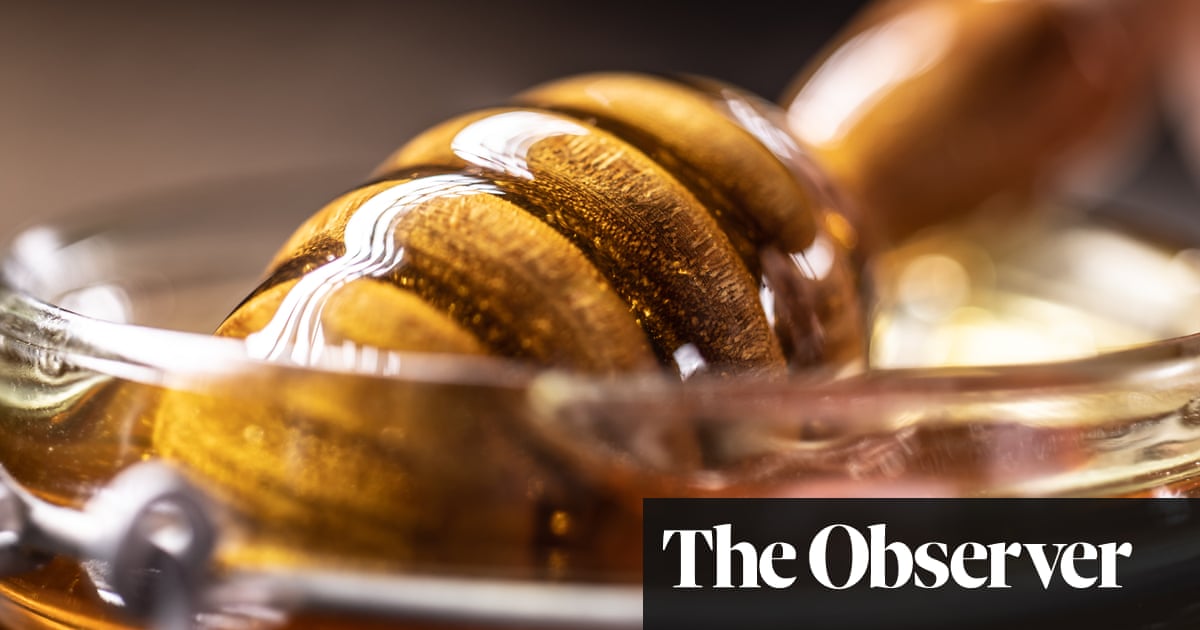‘It’s all a bit marginal’: claims of Brexit trade perks don’t add up, say firms | Brexit


On the four-year anniversary of Brexit last Wednesday, business and trade secretary Kemi Badenoch trumpeted its successes. “The British people’s conviction that the UK would excel as masters of our own fate has paid dividends,” she said, launching a report detailing the benefits.
Among the top achievements listed were booming sales of honey to Saudi Arabia, surging pet food exports to India, a rush of UK pork, worth £18m over five years, heading into Mexico’s restaurants and homes, and UK beauty products sales leaping in China, thanks to barriers being smashed.
“My department is leveraging our post-Brexit freedoms to make the UK the best place in the world to start and grow a business,” added Badenoch, seen by many Tory MPs as one of several flexing their muscles for a tilt at the leadership quite soon.
But her triumphalist tone, and many of the assertions in the Department for Business and Trade’s (DBT) Brexit 4th Anniversary document, did not quite ring true with the industries cited.
“I don’t know any of our members who export any great amounts [to Saudi Arabia],” said Paul Barton of the Bee Farmers Association, which represents professional beekeepers in the UK.
“Speaking from the industry, we’ve not had any assistance from the government in exploiting [the Saudi Arabian] market, getting access into that market. So I don’t know where their increases come from.”
He added: “I do remember years ago a chap, I think he was Kuwaiti or Saudi, just knocked on the door and bought a couple of buckets full of honey. I imagine he put it in his hand luggage.”
People in the UK honey business seem focused on other issues. Of all the honey that is consumed in the UK, it is a worry that less than 10% is produced here, Barton said, with cheap Chinese imports making up the stiffest competition.
As far as Brexit is concerned, a big issue is not so much exporting the end product to Saudi or anywhere else but importing queen bees, and on that, Brexit is proving more of a problem than a help.
Queens are reared in southern European countries and brought to the UK so that farmers can begin their hives earlier in the season. But Brexit red tape means the bees are now subject to expensive and disruptive veterinary checks.
As for the government’s claim that “a barrier resolution worth £550m to UK businesses over five years” has helped British beauty companies export to China, the barrier in question had nothing to do with Brexit, according to industry experts. In 2021, China relaxed rules on animal testing, which had been a big red line for UK manufacturers, making it easier to sell into their market.
Millie Kendall, chair of the British Beauty Council, said the loss of trade with the EU outweighed the gains by a long way. “What we really want is to sell to Europe and the US. Economically, we’ve lost £853m in exports to the EU. Sixty-five per cent of our exports go to Europe – £550m sounds nice but it’s not even what we’ve lost.”
One of Kendall’s members sent some products to Spain in August and they have still not arrived. Another, larger company has had to build a £1m warehouse in the EU simply to be able to distribute products. Most smaller companies have just given up, she said.
For larger sectors, Badenoch’s triumphs seemed trivial, experts said. The business secretary’s announcement said officials had unlocked £25m of exports for medicines and £17m of new business in Colombia.
“Together, these amounts represent less than 1% of the total value of the UK pharmaceutical exports of goods in 2022,” said Dr Jennifer Castañeda-Navarrete, a senior policy analyst at Cambridge Industrial Innovation Policy, based at Cambridge University’s Institute for Manufacturing.
In 2022, 46% of pharmaceutical exports went to the EU. She warned that Britain’s previously thriving pharmaceutical sector was now in a trade deficit because we have to import so much more medicine than before – the latest 2022 figures show a $5bn deficit globally, compared with a surplus of $9.7bn in 2010.
A business department spokesperson said: “Many, including the Observer, forecast dire predictions for the UK economy after Brexit. As this document shows, those forecasts have been proven completely false. Of course there have been issues, nobody ever said it will all be perfect.
“However, the report uses official statistics and many of the things people claim are down to Brexit are really down to Covid and supply chain issues. This report is intended as a useful corrective to the consistent doom and gloom about Brexit.”
But the business department’s press release makes no mention of the problems suffered by small UK companies, which have seen their export markets hit and in many cases wiped out. In 2022, researchers at Aston University estimated that 42% of British products previously exported to the EU had disappeared from shops there.
While large companies have been able to spend money on warehouses, vets, distributors, customs clearance, extra shipping costs and all the other red tape that arrived with Brexit, smaller ones have not.
Thomas Sampson, professor of economics at the London School of Economics, said the top 15% of companies had not seen a drop in exports to the EU, but for smaller businesses, there had been a 20% fall.
“It’s great that the DBT are working on removing market access barriers. But it’s all a little bit marginal relative to the seismic shock of leaving the single market and customs union,” Sampson said. “The big gains in the next five years will come by focusing on what’s happening with the EU and trying to simplify our relationship.”
David Henig, director of the UK Trade Policy Project, said that the government’s fourth anniversary of Brexit document was “the usual set of claims that are in various ways slightly distorted”.
Source link




